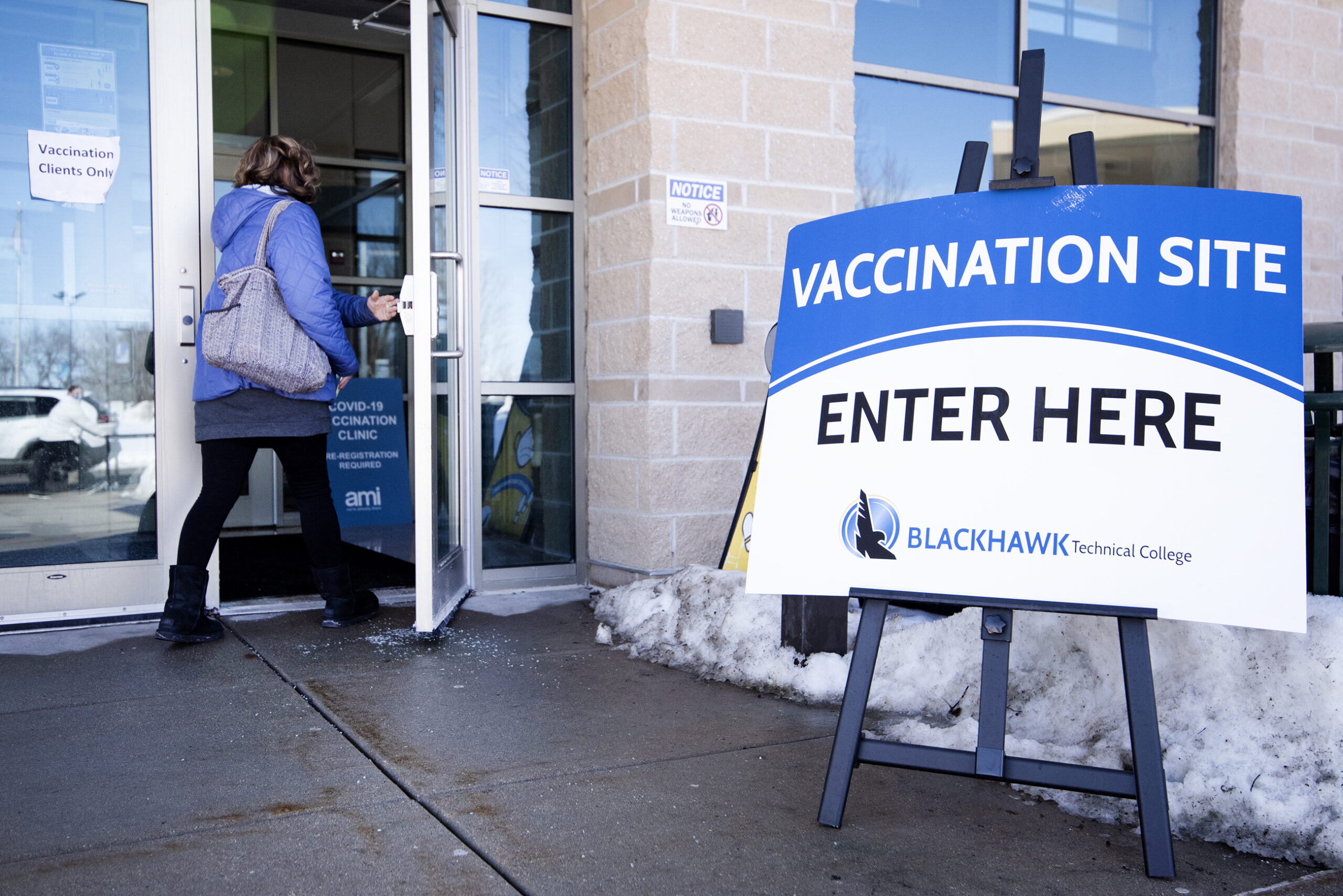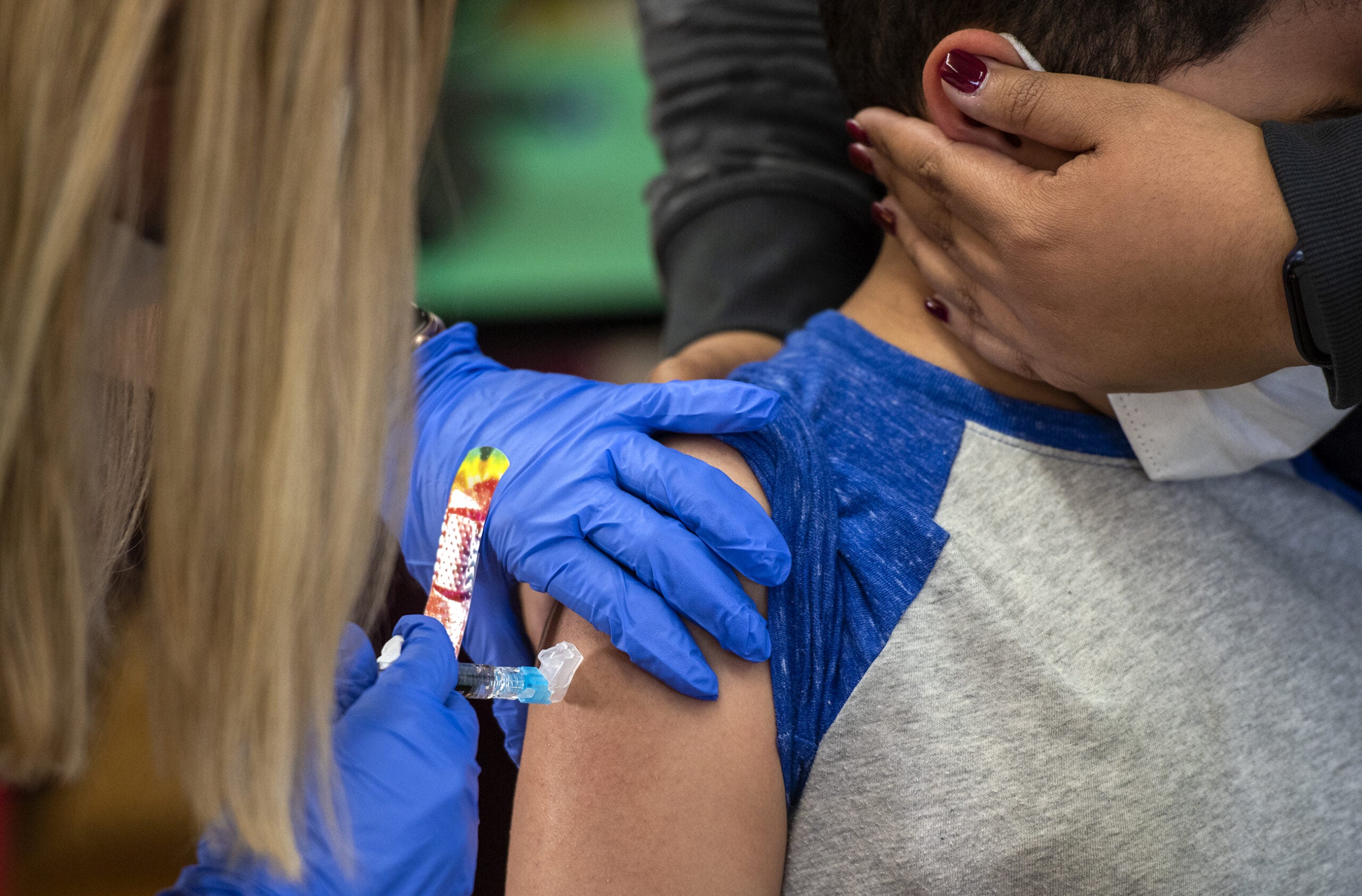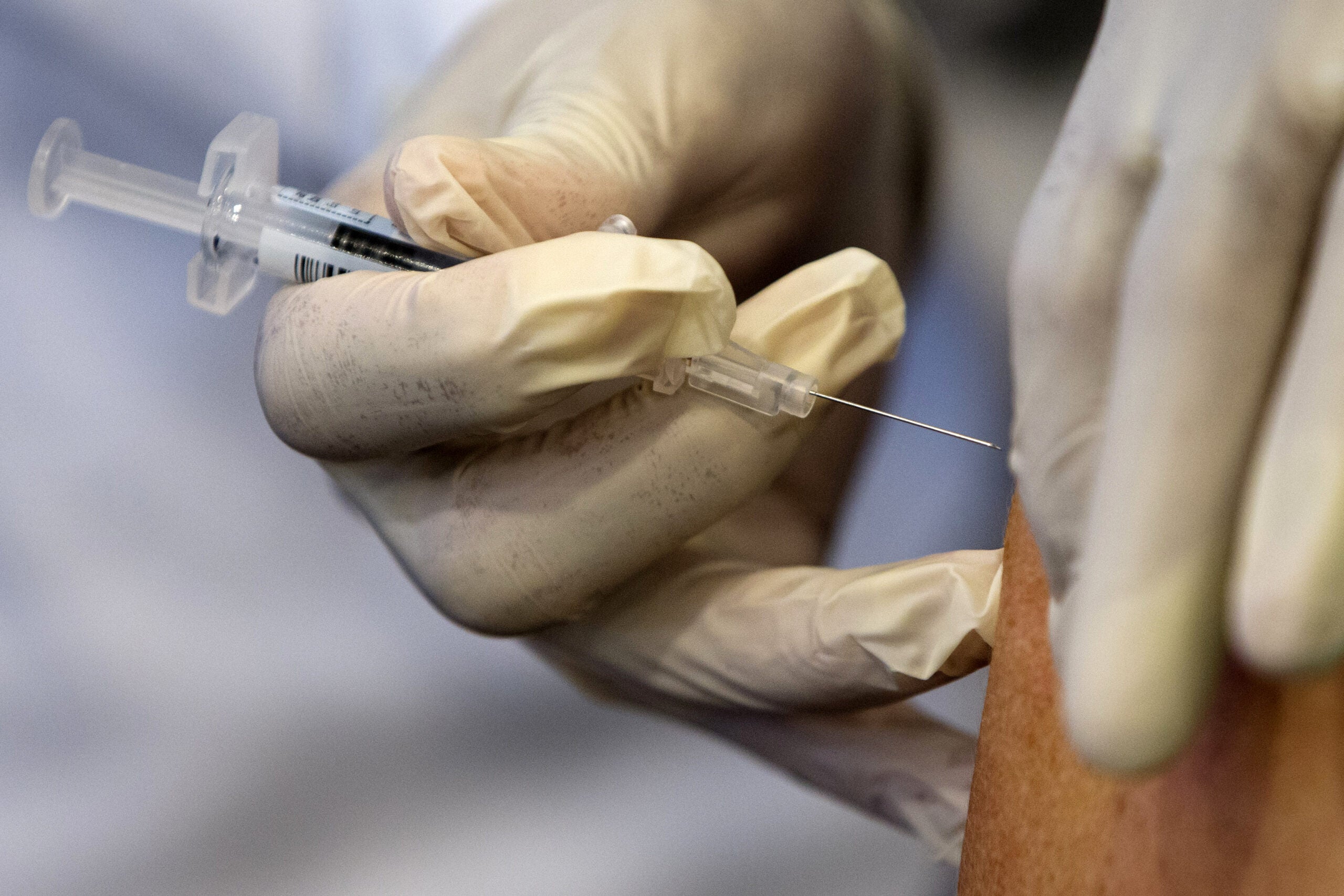Local pandemic health orders are easing around the state and the number of people getting vaccinated continues to rise.
The changes are making Dr. Christopher Green, chief medical officer for the Wisconsin Hospital Association, hopeful.
“Ever since the vaccines started being approved, I’m feeling more optimistic we’ll get this under control this year, more towards the summer,” Green told members of the Wisconsin Manufacturers and Commerce during an online presentation Wednesday.
News with a little more humanity
WPR’s “Wisconsin Today” newsletter keeps you connected to the state you love without feeling overwhelmed. No paywall. No agenda. No corporate filter.
One in four adults in the United States have now received their first dose of the vaccine. In Wisconsin, 19 percent of Wisconsin residents have received at least one dose of COVID-19 vaccine. Pfizer and Moderna require two shots while the recently approved Johnson & Johnson vaccine only requires a single dose.
Demand for vaccine currently outstrips supply. But even now there are signs it’s not just a matter of supply and demand — it’s willingness to be inoculated.
At Rock Haven, a county-owned nursing home in the southern Wisconsin city of Janesville, a supervisor said as of Wednesday, 27 staff have left or been laid off for refusing the COVID-19 vaccine. That’s twice what Channel3000 reported in January.
A national survey found 15 percent of health care workers offered the vaccine declined it, with nursing home personnel more likely to refuse than hospital staffers.
“Three factors will determine our future course, one is uptake of vaccine,” Green said. “We hear different things from different parts of the state and country in terms of acceptance by citizens and employees.”
Another factor in ending the pandemic, he said, is continued use of masks and social distancing until enough people are vaccinated.
Recently the Centers for Disease Control and Prevention issued guidelines on what fully vaccinated people could do. Some municipalities in Wisconsin are easing local pandemic health orders. Both Dane County and Milwaukee have mask mandates, as does the state.
Recently, Dane County allowed larger gatherings, and Milwaukee health officials plan to revise their current order March 18.
But the progress in reducing new COVID-19 cases and hospitalizations may depend on variants of the virus which are more contagious.
Green told the business lobbying group that he is most concerned about the P1 variant from Brazil, which has been detected in the U.S. but not Wisconsin. Brazilians who got the original virus were not immune to the new P1 strain and were reinfected with COVID-19.
As of Monday afternoon, 27 cases of coronavirus variants have been detected in Wisconsin, all but one is the strain first found in the United Kingdom, B.1.1.7. It is expected to be the most prevalent variant in the U.S. by the end of March.
“So could we get a different variant that emerges that is not only more infectious but more severe? This could happen. I’ve got my fingers crossed. I hope it doesn’t,” Green said.
Green urged businesses to encourage their staff to get vaccinated and continue following COVID-19 precautions to help reduce mutations which occur as the virus spreads.
Wisconsin Public Radio, © Copyright 2026, Board of Regents of the University of Wisconsin System and Wisconsin Educational Communications Board.






